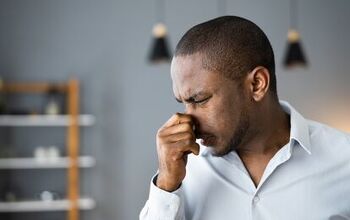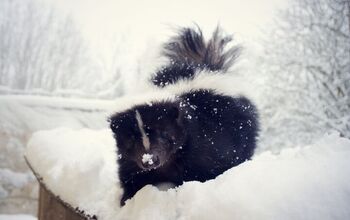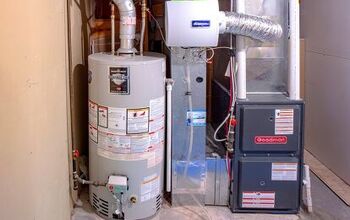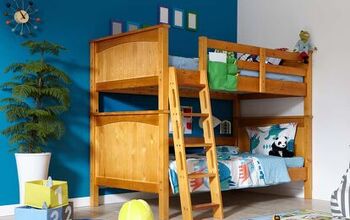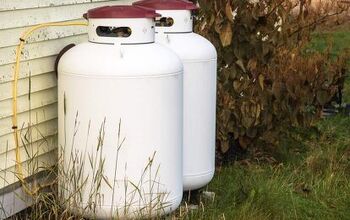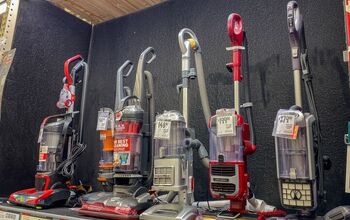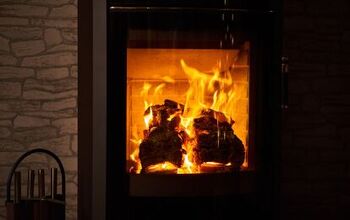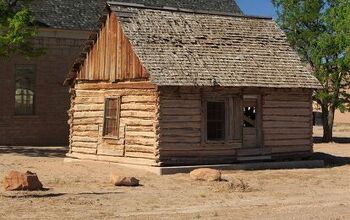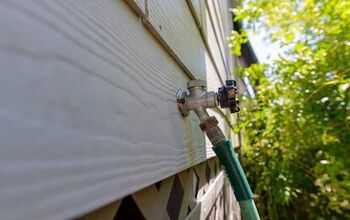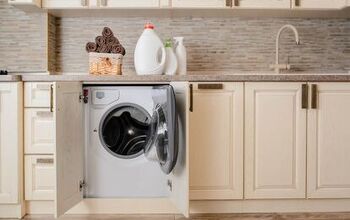House Smells Like Maple Syrup? (Possible Causes & Fixes)

Have you ever walked into your house and noticed there’s a distinct, sugary, and almost overwhelming stink?
If your house smells like maple syrup, it could indicate there’s a leakage in your air conditioning unit’s coils. Depending on the type of coolant you use in your air conditioner, there could also be a sweet, sugary smell if there’s a leakage.
That said, someone who has never experienced this may ask, what does smelling like maple syrup mean? The name comes from maple syrup urine disease (MSUD), making it difficult for the body to break down some proteins. If you’re battling this condition, your urine will smell like maple syrup, hence the name.
Do You Need a Maid Service?
Get free, zero-commitment quotes from pro contractors near you.

Is Coolant Leakage the Only Cause of Maple Syrup Smell?
Whenever there’s a maple syrup smell, coolant leakage is always the prime suspect. However, it’s not the only cause of the maple syrup smell. A musty or sweet odor may also indicate mold growth. But overall, most molds produce a sweet and earthy smell.
Mold growth is particularly common in basements due to unnoticed water leaks and moisture seepage on walls. Insect infestation can also cause your house to smell like maple syrup. Thus, if you notice the smell, it’s best to look beyond coolant leakage.
How to Keep the Maple Syrup Smell at Bay
The sweet maple syrup smell shouldn’t fool you because it indicates serious trouble. The first thing to do when you notice a smell is to identify its cause. That will enable you to plug it in early before it leads to more severe problems. That said, here’s how to keep the maple syrup smelling at bay.
Preventing Leakage in Your AC Unit’s Coils
Leaking AC units can be quite a nuisance, especially during the hot summer months. They not only decrease your home’s energy efficiency but also require expensive repairs. A sweet maple syrup smell is the tell-tale sign that your AC unit’s coils could be leaking.
There are several ways to check whether your AC coil is leaking. The simplest way to do so is to check the surrounding area for signs of moisture. Also, check out for signs of frost around the coils. If no hot air gets produced at the opposite end of your AC unit, the chances are that there’s a leakage.
What Causes AC Coils to Leak?
The most common cause of AC coil leaks is formic acid, which is produced when the copper from which the coils are made reacts with volatile organic compounds (VOCs). Typically, these compounds come from the vapor released from the aerosol sprays, cleaning agents, and air fresheners used around your home.
You can prevent AC coils’ leakage by:
- Limiting the use of volatile organic compounds around your house.
- Regularly bringing fresh or into your AC system to disperse the compounds.
- Using air purifiers designed to neutralize VOCs via the use of UV light. Typically, UV rays from the run neutralize VOCs naturally. Unfortunately, natural sunlight doesn’t penetrate your AC system. However, some air fresheners utilize UV light to replicate the natural process of the sun to purify the air.
- Preventing acid buildup by servicing and cleaning the AC unit’s coils regularly. Clean, acid-free coils are less susceptible to leaks and are also efficient.
- Installing a coil lamp to prevent the breeding of bacteria. If bacteria grow inside your HVAC system, it will cover the coils, thus increasing the chances of clogs and leakages.
When your coils leak, there’s so much you can do to address the problem. If you try fixing the problem yourself, the best you can offer is a temporary solution that will only delay the leaks for a while. The sure-fire way of preventing leakage is having a technician check out the AC unit. It’s best to leave the job to technicians because AC units are often complicated.
Quick Ways To Avoid Bad Smells In Your Home
How to Prevent Mold Growth in Your Home
Since the maple syrup smell in your home could also indicate mold growth, it’s best to know how to control the condition. Despite the sweet, sugary smell, mold has several side effects. For starters, it can cause a sore throat, stuffy nose, coughing and wheezing, skin rash, and burning eyes.
Kids and people with asthma and allergies are particularly vulnerable to mold and may experience severe reactions. Although mold has been around for millions of years, it isn’t something to entertain around your house. Mold can enter a house through open windows and doors, vents, and HVAC systems.
According to the CDC, mold can grow anywhere with moisture, including leaking points on the roof and windows and even on pipes. It can also grow on cardboard, paper, paints, drywall, upholstery, carpets, and ceiling tiles. Pets, bags, shoes, and clothing can also be mold vectors. Check this out if your house smells like rotten eggs when it rains.
Identifying Mold Growth
Typically, mold looks like spots on the affected area. It can appear in different colors and may also have a musty smell. As soon as you notice mold growth, you should remove it. A maple syrup smell characterizes some mold varieties. If such mold grows in your home, you should first clean it up before fixing the underlying moisture problem.
Getting rid of mold from hard surfaces such as walls and ceilings, using everyday household products, water, and soap is relatively easy. If your locality experiences hot and humid summers, mold will be a recurring problem. A one-off treatment may not be effective, thus the need to find a permanent solution. Here’s how to prevent mold growth:
- Keep humidity levels lower than 50%, especially during the hot months of the year. A dehumidifier or AC unit can help you do so. Also, it’s best to purchase a meter for monitoring your home’s humidity.
- Ensure air circulates freely around your home. The bathroom, basement, and kitchen, in particular, need fans for better ventilation.
- Fix leaks in your home’s roof, plumbing system, and walls to prevent mold growth.
- If your neighborhood is prone to flooding and you fall victim to this unfortunate situation, ensure you clean and dry out your home thoroughly within 28 hours. This will go a long way in preventing mold growth. Before giving your walls a fresh coat of paint, add mold inhibitors into the paint.
- Bathrooms, basements, kitchens, and other vulnerable rooms should always be cleaned using mold-killing products to prevent infestation.
- Soaked carpets and upholstery that can’t be dried immediately should be removed. Besides, it’s best to avoid using carpets in moist places such as basements and bathrooms, since they encourage mold growth.
- Direct rainwater away from your home. If the groundwater around your house isn’t adequately sloped from its foundation, water will always collect there whenever it rains. Subsequently, it will seep into your home’s basement or crawlspace, thus causing mold growth.
- Identifying potential problem areas in your home can also help you prevent mold growth. This includes gutters, attics, and windows. Water-proofing these areas will ensure mold resistance.
Preventing Insect Infestation
Insect infestation is another potential cause of the maple syrup smell in your home. Heavy infestations, in particular, can cause a strong, sweet odor. Ants and bedbugs are common culprits. A University of Florida study suggests that bedbugs produce sweet-smelling oil from their bodies.
On the other hand, cockroaches also emit a strong odor, which can sometimes be sickeningly sweet. If your home is heavily infested with bedbugs or cockroaches, the chances are that there’ll be a noticeable sweet odor in the air.
Soon as you notice a sweet, enduring odor in your basement or other areas of your home, it’s best to undertake a thorough inspection for insect infestation. In the case of a bedbug infestation, look out for skin casts and eggshells from live or molting bugs. Reddish stains on fabrics may also indicate an infestation. Here’s what you should do to prevent insect infestation.
- Blocking entry points to keep insects and pests at bay. This may include plugging all possible entry points into walls and keeping your doors closed as much as possible.
- Eliminating potential shelters and food and water sources for the pests. Although some household pests such as roaches and bed bugs can survive without food and water for extensive periods, eliminating food and water sources can help to eliminate them.
- Fumigating your home can often help prevent pest infestation. It not only kills the pests but also destroys their eggs.
- Attics, basements, and crawl spaces in your home should be kept dry and well-ventilated to deter pests.
- Rotten roof shingles and fascia should be replaced because ants are often attracted by deteriorating wood.
- Garbage should be disposed of properly. In essence, garbage bins should always stay sealed because they act as food sources for pests, such as cockroaches.
Do You Need a Maid Service?
Get free, zero-commitment quotes from pro contractors near you.

Wrap Up
After moving into your home and decorating it to your tastes, the last thing you expect is pest and mold infestation or even malfunctioning HVAC systems. A maple syrup smell is the easiest way to tell whether you’re facing any of these challenges.
Fortunately, it’s easy to not only fix the problems but also keep them at bay. Always remember that the maple syrup smell indicates a more significant underlying issue, which needs to be fixed ASAP to prevent it from worsening.
Read These Guides For Other Unique Smells In The House

We are a team of passionate homeowners, home improvement pros, and DIY enthusiasts who enjoy sharing home improvement, housekeeping, decorating, and more with other homeowners! Whether you're looking for a step-by-step guide on fixing an appliance or the cost of installing a fence, we've here to help.
More by Upgraded Home Team










